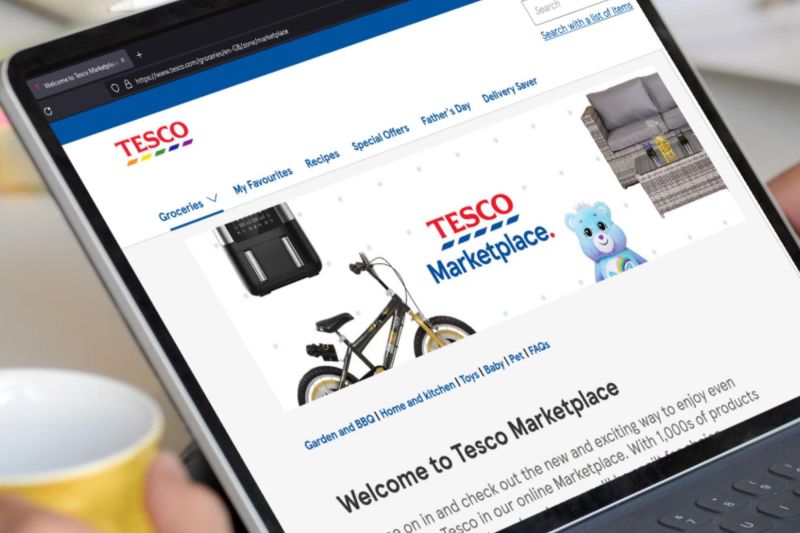The DTC Trend: Are Brands Saying Goodbye to the Middleman?

In the fast-paced and ever-evolving world of retail, brands are constantly seeking innovative ways to connect more directly and effectively with their customers. The rise of the Direct-to-Consumer (DTC) trend and the use of online marketplaces like eBay, Amazon, OnBuy, B&Q, ManoMano, The Range, Debenhams, Boots and Superdrug, has been a notable game-changer, completely reshaping the way businesses interact with consumers and revolutionising the traditional supply chain.
DTC eCommerce allows brands to market, sell, and deliver products directly to their customers, bypassing conventional wholesale distribution channels. This approach has seen a considerable surge in brands cutting out the middleman, embracing a more direct and personalised retail strategy via marketplaces. According to a recent report by IAB UK, DTC brands have undeniably entered the mainstream, with a staggering 97% of the UK’s online population being aware of at least one leading DTC brand. Furthermore, the report highlights that 39% of consumers have made purchases from one or more DTC brands, while an impressive 10% have bought from five or more. These figures underscore the significant advantages that the DTC model offers for brands seeking to enhance their market presence and build lasting relationships with their customers.
By adopting a DTC model and using online marketplaces, brands gain unparalleled control over their products and brand image, tailoring sales strategies and offerings based on real-time customer preferences and market demands. This level of customisation fosters stronger customer loyalty and retention, preventing the devaluation of products. Brands like Dollar Shave Club and Glossier are excellent examples of DTC success stories, showcasing how direct engagement with customers can lead to extraordinary growth and brand value.
Using marketplaces helps eliminate the middleman and not only benefits customers but also significantly improves profit margins for brands. By retaining more revenue and financial flexibility, brands can invest in enhancing product quality and customer experiences. The DTC model empowers brands to overcome the limitations of traditional distribution channels, allowing them to explore new product offerings and stay ahead in a competitive market.
One of the most impactful advantages of the DTC model is its ability to foster more profound and meaningful connections with customers. Brands can engage directly with their customers, building a loyal community around their products. This direct communication also provides invaluable feedback and data, informing product improvements and personalised offerings. Brands that listen to their customers and respond to their needs are more likely to build lasting relationships and generate repeat business.
While the DTC model offers considerable benefits, it also poses challenges for brands aiming to thrive in an increasingly competitive marketplace. The shift towards DTC and eCommerce is expected to account for a substantial 30% of sales within the next five years, emphasising the need for brands to adopt agile and customer-centric strategies that cater to the new retail landscape focused on online marketplaces. Living and Home’s sales for instance, since using ManoMano, have increased rapidly month-on-month. Their July sales in 2021 increased by 24%, compared to June 2021, and in January – October 2021, compared to their previous year’s sales, Living and Home saw an increase of 135%.
The democratisation of the DTC approach has been influenced by the emergence of digital technologies and eCommerce marketplaces. Smaller businesses now can enter the market and compete with more prominent established brands, leveraging social media, web development, and digital marketing tools to create a strong DTC presence, as nearly 60% of the world’s population is on social media and 37% of social media users are more likely to buy based on recommendations from other users.
Additionally, online marketplaces and third-party platforms provide brands with more avenues to reach customers and diversify their sales channels. This has significantly transformed the retail landscape, empowering brands to engage with customers directly and offer unparalleled shopping experiences.
At TymeOnline, we understand the significance of brands going DTC via marketplaces, as many may lack the resources and skillsets for a seamless transition. Our tailored solutions, driven by cutting-edge technologies and data-driven strategies, help brands thrive in this dynamic world of retail.
Embrace the power of DTC with TymeOnline and unlock your brand’s full potential. Interested in embracing DTC to boost your retail success? Contact TymeOnline today to discover how our tailored solutions can elevate your brand’s presence and profitability in the competitive market. Let us shape the future of your retail journey together.





